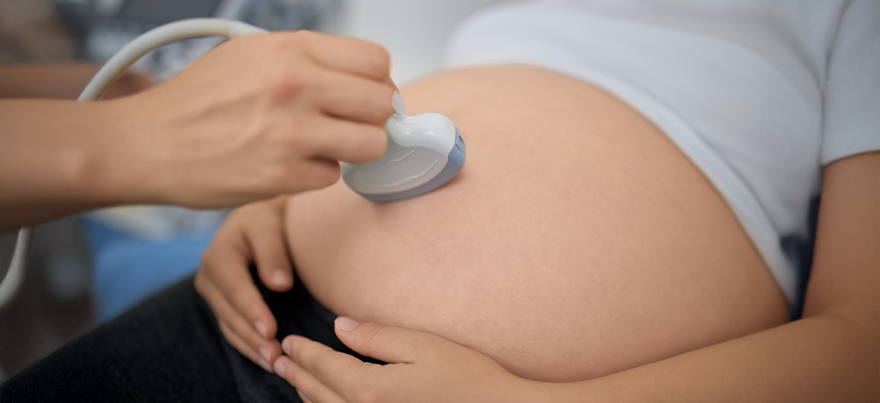Categories
Egg Donor IVF and Its Benefits You Should Know
Jul 14, 2025
When the journey to parenthood takes unexpected turns, advanced fertility treatments can offer new hope. Egg Donor IVF is one such option that has been bringing new hope to millions of couples and individuals worldwide. At Rainbow Hospitals, we understand that every fertility journey is deeply personal, often filled with challenges, questions, and emotions. What exactly is Egg Donor IVF? This article explains this procedure, how it works, who may benefit from it, and what makes egg donation in India a trusted and growing choice.
If you are exploring options for fertility treatments, including Egg Donor IVF, reach out to Rainbow Hospitals.
For More Information and Appointments, Please Call:
Disclaimer:
The information provided in this blog is for general informational purposes only and should not be considered a substitute for professional medical advice, diagnosis, or treatment. Always seek the guidance of a qualified healthcare provider with any questions you may have regarding a medical condition, symptoms, or treatment options. Never disregard professional medical advice or delay seeking it because of something you have read here.
What Is Egg Donor IVF?
Egg Donor IVF is a fertility treatment where eggs donated by a healthy woman are fertilised in a laboratory using the sperm of the intended father or a donor. The resulting embryo is transferred to the recipient's uterus, who carries the pregnancy. This process combines In-Vitro Fertilisation (IVF) with egg donation, and it has become a widely accepted and successful solution for women unable to produce viable eggs. It is also an option for same-sex couples, single men working with a surrogate, or women with genetic conditions they do not want to pass on.Who Needs Egg Donor IVF?
Egg donation in India is recommended in various medical and social situations. You might consider it if:- You have a low ovarian reserve or poor egg quality.
- You are of advanced maternal age, and your natural fertility has declined.
- You have had multiple failed IVF cycles.
- You have undergone treatments like chemotherapy or radiation that affect egg production.
- You have genetic disorders that could be passed on to the child.
- You are a same-sex male couple or a single man choosing surrogacy.
Step-by-Step Guide for Egg Donor IVF
Donor Selection
A healthy woman is chosen after rigorous screening for physical and mental health, medical history, and infectious diseases. This screening process is designed to ensure the safety and well-being of both the donor and the recipient. Egg donors in India are usually between 21 and 35 years of age.Egg Retrieval
The selected donor undergoes a cycle of hormonal stimulation. Once her eggs mature, they are collected using a minimally invasive procedure.Fertilisation
The collected eggs are fertilised in the lab with the sperm of the intended parent or a donor, just like in conventional IVF.Embryo Transfer
One or more healthy embryos are transferred into the recipient's uterus (or surrogate), who then carries the pregnancy to full term.Pregnancy Test and Follow-up
After about two weeks, a pregnancy test is performed to confirm the outcome. Ongoing care and support follow if the test is positive.Benefits of Egg Donor IVF
High Success Rates
Donor eggs usually come from young, healthy women, which significantly increases the chances of successful fertilisation, implantation, and full-term pregnancy, giving you the confidence you need.Hope for Older Women
For women in their 40s or those with early menopause, egg donor IVF makes pregnancy biologically possible.Option for Genetic Screening
Embryos can be screened for genetic conditions before transfer, reducing the risk of inherited disorders.Emotional Fulfilment
Even if the child doesn’t share your genes, the emotional bond begins when you bring life into the world. Many recipients say the experience of carrying and giving birth to their child is deeply fulfilling.Flexible for Diverse Family Structures
Egg donation in India is increasingly inclusive, helping not just heterosexual couples but also single parents and LGBTQ+ individuals.Why Is India Becoming a Preferred Destination for Egg Donor IVF?
Egg donation in India has gained global attention for several reasons:- Skilled fertility specialists and world-class facilities like those at Rainbow Hospitals.
- Strict ethical and medical protocols to ensure donor and recipient safety.
- Cost-effective treatment options compared to many Western countries.
- Well-regulated laws under the ART (Assisted Reproductive Technology) Act of 2021 that protect the interests of all parties involved.
Emotional and Ethical Considerations
Choosing egg donor IVF is not just a medical decision; it also involves a rollercoaster of emotions and ethical dilemmas. It is normal to feel conflicted at first. Many couples worry about the genetic disconnect. However, most parents find that love, not genetics, defines their relationship with their child over time. Our team at Rainbow Hospitals is here to provide emotional support and guidance throughout your journey. At Rainbow Hospitals, our fertility counsellors are always available to walk you through the emotional aspects of this journey. We believe in supporting the heart as much as the science, providing you with the care and guidance you need. Egg donor IVF is not just a treatment; it is a path to parenthood for many who had almost given up hope. Whether you are considering it because of age, a medical condition, or social circumstances, you are not alone. With the proper guidance and care, parenthood through egg donation can be as meaningful and joyful as any other.If you are exploring options for fertility treatments, including Egg Donor IVF, reach out to Rainbow Hospitals.
For More Information and Appointments, Please Call:
FAQs
1. Is the egg donor involved in any way after the IVF process?
No, egg donation in India is strictly anonymous and altruistic as per the law. Once the eggs are donated, the donor has no involvement in the pregnancy or child’s life. This protects the privacy and emotional boundaries of both parties.2. Can I choose specific traits for my egg donor in India?
Egg donors are matched based on basic physical traits, ethnicity, and blood group, but Indian laws do not allow choosing a donor based on detailed personal preferences. Rainbow Hospitals ensures ethical matching that aligns with medical and legal guidelines.3. What are the chances of success with Egg Donor IVF?
Egg Donor IVF has higher success rates than standard IVF, especially when the eggs come from young, healthy donors. Success rates can range from 55% to 75% per cycle, depending on the recipient’s health and clinic quality.Disclaimer:
The information provided in this blog is for general informational purposes only and should not be considered a substitute for professional medical advice, diagnosis, or treatment. Always seek the guidance of a qualified healthcare provider with any questions you may have regarding a medical condition, symptoms, or treatment options. Never disregard professional medical advice or delay seeking it because of something you have read here.











